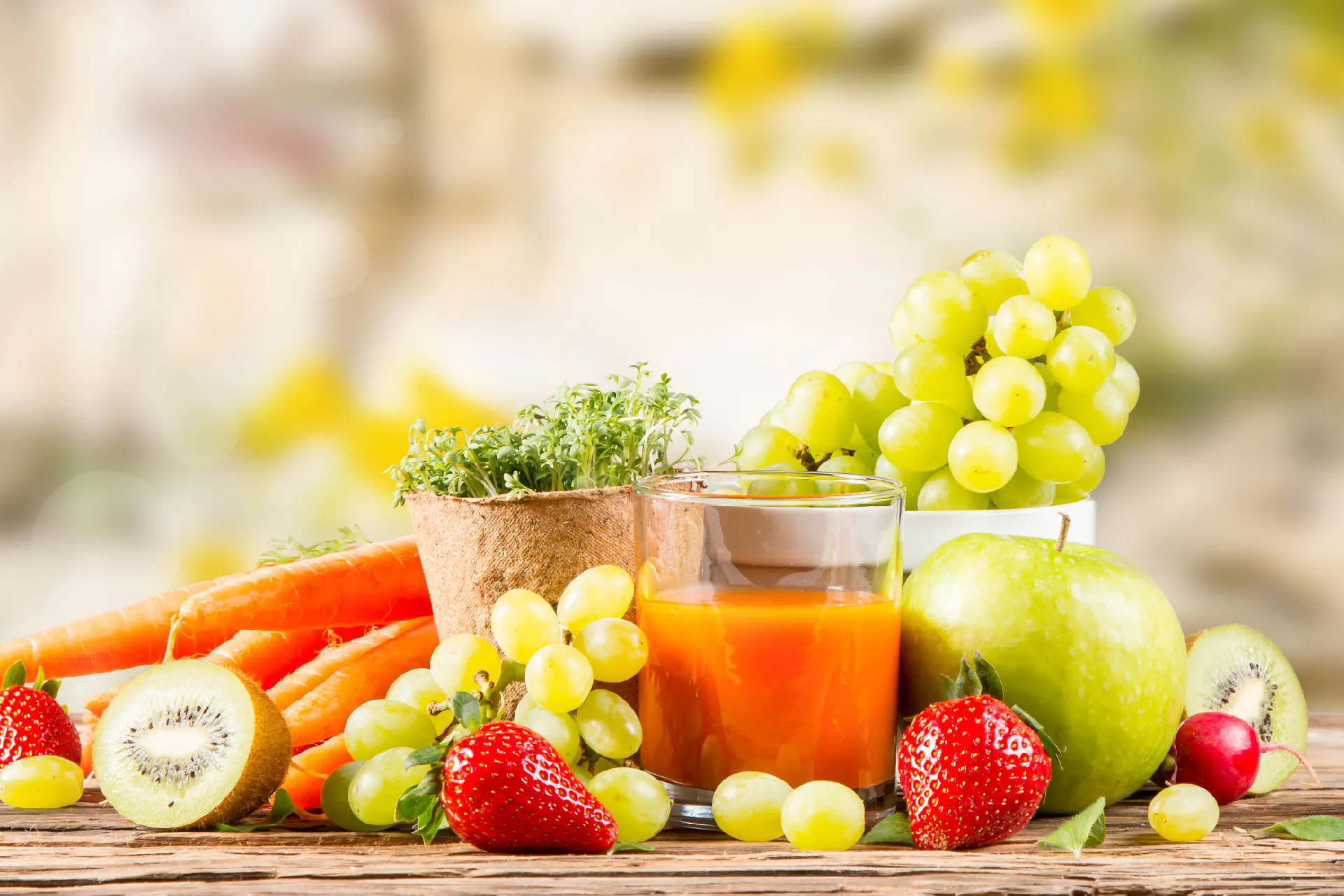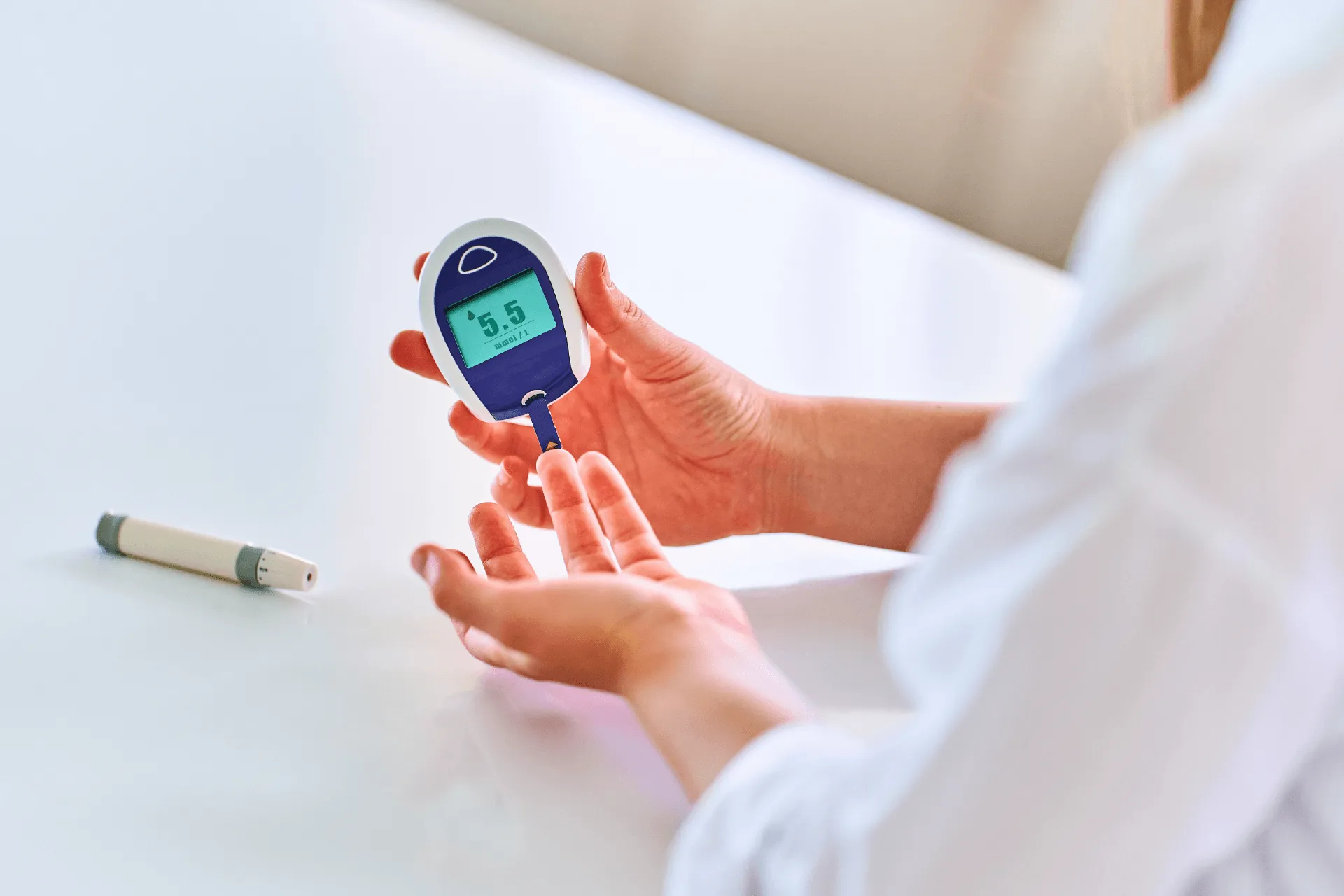Diabetes | 10 min read
8 Must Have Foods that Should be Part of a Diet for Diabetics
Medically reviewed by
Table of Content
Key Takeaways
- Carefully crafted diet and medications help to manage diabetics
- avocados are a great addition to any diet for diabetics
- Berries, avocados are good for diabetic patients
Diabetes can be a tricky disease to manage, especially when adjusting to the diet for diabetics. Meal plan restrictions alone can be difficult to wrap your head around and then come to the medications that need to be taken like clockwork. However, a prescribed and carefully crafted diet for diabetics is among the most important aspects of its treatment and management. Without this, your symptoms and the disease could worsen or spiral out of control.
While there are some diet all-rounders, it is important to have a diet specially tailored to your specific needs as any general diet for type 2 diabetes or type 1 diabetes will not do you any good. To know more about the foods that fit perfectly into a diet plan for diabetics, take a look at these pointers.
Recommended Foods for Diabetic Patients
Oats
When picking foods to craft a diet for diabetics, the general way to go about it is to choose foods with a low glycemic index (GI). Oats are among those foods as they have a GI of 55, helping keep blood sugar levels low and minimizing spikes. In addition to that, oats have B-glucans, which help glycemic control and improve the body’s insulin sensitivity.
Legumes
Like oats, legumes also have a low GI score, making them a good option to incorporate into a diet plan for diabetics. Moreover, legumes serve as a great source of essential nutrients such as protein, fiber, and complex carbohydrates. These are required for a healthy, balanced diet without added sugars. However, avoid legume products if you’re looking to keep your blood sugar in check. These have a higher GI score as they usually contain simple starches and added sugars.
Leafy Green Vegetables
Leafy green veggies are very nutrient-dense and calorie-efficient. They also contain relatively little carbohydrates that can be digested or absorbed by the body; therefore, they have little impact on blood sugar levels. Leafy greens like spinach, kale, and others are excellent providers of vitamin C as well as other vitamins and minerals. According to some research, people with diabetes may require more vitamin C since their vitamin C levels are lower than those of people without the disease.
Broccoli
Around 27 calories and three grimes of digestible healthy carbohydrates are found in a half cup of cooked broccoli, which also has essential vitamins C and magnesium. According to research, eating broccoli and sprouts helped people with diabetes lower their blood sugar levels. Sulforaphane, a substance found in cruciferous vegetables like broccoli and sprouts, is most likely to blame for this drop in blood sugar levels. [1]
Yogurt
Yogurt is a great addition to the diet for type 2 diabetes patients, especially if it contains probiotics. Studies have found that this type of yogurt lowers the risk of heart disease in patients with type 2 diabetes as it lowers the level of cholesterol in the body. Further, probiotic foods help increase insulin sensitivity and keep inflammation in check.
Apple Cider Vinegar
Both ordinary vinegar and apple cider vinegar offer several health advantages. Although they are extracted from apples, the fruit's sugar is fermented to produce acetic acid. The finished product has fewer than 1 g of carbohydrates in each tablespoon. According to type 2 diabetes studies on several patients, vinegar improves HbA1c and fasting blood sugar levels. [2]
Sweet potatoes
When adding potatoes to a diet for diabetic patients, remember that it must be sweet potatoes or yams and not regular potatoes. The regular variant has a high GI score whereas yams are nutritious and have a low score. Eating it whole, with the skin, has been proven effective as it contains healthy amounts of fiber. Some animal studies have also found sweet potatoes to reduce diabetes markers too.
Beans
These are a great source of plant-based protein and an overall nutritious option for a healthy diet. Beans have a low GI score and help with optimal blood sugar regulation too. There are several options which include navy, pinto, kidney, or black beans, all of which work just as well.
However, if you’re using canned beans, be sure to rinse these properly to get rid of any added salts.
Berries and citrus fruits
Studies have found high levels of oxidative stress in those with diabetes and a solution to that is to consume foods rich in antioxidants. Berries are one such option that work perfectly in a diet plan for diabetics as they full of these antioxidants and other essential minerals. In fact, in fruits like oranges, the two bioflavonoid antioxidants, hesperidin and naringin, are known primarily for their antidiabetic effects.
Chia seeds
Another food that is high in antioxidants, as well as healthy omega-3 content, are chia seeds. This superfood is a great addition to a diet for diabetics to lose weight because it is a good source of protein as well as fiber. In addition to that, it was found to be more effective for weight loss in diabetics in comparison to oat bran.
Flaxseeds
Omega-3 fats, fibre, and other distinctive plant elements are abundant in flaxseeds, all of which are good for your heart. Its insoluble fibre contains lignans, which may help lower the risk of heart disease and enhance blood sugar control. According to research, there is a clear link between whole flaxseed intake and lower blood sugar levels. [3]In another study, those with prediabetes were given daily doses of flaxseed powder, which decreased blood pressure but did not improve glycaemic control or insulin resistance. [4]
Olive oil
Oleic acid, a monounsaturated lipid found in extra-virgin olive oil, has antioxidant qualities, which may help with glycaemic control and can lower fasting and post-meal triglyceride levels. This is crucial because individuals with diabetes frequently struggle to control their blood sugar levels and have elevated triglyceride levels.
Nuts
Studies on a range of nuts have revealed that frequent eating may lower LDL (bad) cholesterol, blood sugar, HbA1c (a measure for long-term blood sugar management) levels, and inflammation. Nuts may also assist people with diabetes in strengthening their cardiovascular system. [5] Moreover, studies show that nuts help lower blood sugar levels. [6]
A type 2 diabetes study indicated that regular use of walnut oil reduced blood glucose levels. This discovery is significant since people with type 2 diabetes frequently have high insulin levels, which are associated with fat. [7]
Avocados
With less than 1g of sugar, avocados are a great addition to any diet for diabetics, be it a keto diet for type 2 diabetes or a keto diet for type 1 diabetics. This is mainly because obesity is linked to diabetes and consuming avocado is associated with lower body mass index as well as body weight. What’s more, studies found that the avocatin B (AvoB) fat molecule that is only found in avocados helps reduce insulin resistance. This is ideal for those managing diabetes and looking for a healthy way to keep their sugar in control.
Fatty Fish
The omega-3 fatty acids DHA and EPA, which have significant advantages for heart health, are found in abundance in fish, including salmon, sardines, herring, anchovies, and mackerel. Those with diabetes, who have a higher risk of heart disease and stroke, need to consume enough of these fats on a regular basis. DHA and EPA shield the blood vessel lining cells, lower inflammation-related biomarkers, and may enhance artery health.
According to research, those who frequently consume fatty fish have a lower chance of developing acute coronary syndromes, such as heart attacks, and are less likely to pass away from heart disease. [8]
Eggs
The risk of heart disease may be lowered in several ways if you regularly eat eggs. For example, eggs may reduce inflammation, boost HDL (good) cholesterol levels, enhance insulin sensitivity, and alter the size and shape of LDL (bad) cholesterol.
According to studies, eating eggs for breakfast could help people with diabetes control their blood sugar levels throughout the day because they are high in fat and low in carbohydrates. [9]
Arming yourself with information about the foods that belong in the diet of a diabetics patient is a step in the right direction. However, this isn’t enough as you need to pair it with healthy lifestyle choices. You need to keep your weight in check and many assume that a diet for diabetics to lose weight will do the trick. While this does help, you should do all you can to stay physically and mentally healthy too, while keeping your blood sugar in check.
To that end, here are a few practices you can rely on.
- Take medications on time
- Stay hydrated
- Drink clear liquids often
- Exercise regularly and within limits
- Eat smaller portions of food rather than large meals
- Do not skip meals
- Reduce your stress levels
- Maintain a healthy body weight
Following a healthy, doctor-prescribed diet for diabetics alongside healthy lifestyle choices is your safest bet. These will ensure all-around nourishment and help you deal with any symptoms or complications without much trouble. However, when dealing with diabetes, it is quite common to want to try new-age remedies. Things like a specialized keto diet for type 2 diabetes or similarly, a keto diet for type 1 diabetics that you may find on the internet are rarely the right option without proper guidance. But, if you’re curious, speak to your dietician or specialist about such measures. If you want to protect yourself from diabetes you can avail diabetes health insurance. To find one that can offer tailored care, be sure to use the Bajaj Finserv Health App.
This unique digital tool has numerous perks and features to help you get quality healthcare right through your smartphone. Thanks to the smart doctor search functionality, finding the top dieticians in your city or your locale is now just a few clicks away. What’s more, you can book appointments online and also consult doctors virtually. This makes remote care something you can avail in a reliable setting. Further, the app features a health library where you can learn all about the ideal diet for type 2 diabetes as well as type 1 diabetes and overall healthy living. For quick and easy access to these benefits, download the app for free on Google Play or the Apple App Store today.
FAQs
Are bananas good for people with diabetes?
Each serving of bananas can have between 19 and 35 grammes (g) of carbs, which is something people with diabetes should take into account. Bananas, however, have a low glycaemic index (GI). The GI of a food is a gauge of how much it alters blood sugar levels.
Hence, as part of a balanced diet, pairing a banana with a protein source, such as Greek yoghurt, is a healthy choice for people with diabetes. This will make someone feel fuller for longer and may encourage weight loss, enhancing blood sugar control. On the other hand, blood sugar levels may rise from unripe bananas more gradually than from ripe ones.
Which fruits are good for patients with diabetes?
The best fruits for diabetes include:
- Green apples: They are the best fruit for diabetes since they are high in soluble fibre, niacin, zinc, iron, and other trace metals
- Oranges: Oranges are the ideal fruit for a diabetic diet since they are high in vitamin C. Among the best foods to control diabetes are oranges since they are high in fibre and trace metals
- Pears: Pears are a fantastic source of fibre and vitamin K. This specific fruit tastes fantastic, is the best fruit for diabetes, and only contains nutrients when the fruit matures. This must be included in a diabetic patient's regular diet as fruit salad or as a snack
- Berries: Berries, including strawberries, blueberries, raspberries, and blackberries, contain a variety of phytonutrients, including anthocyanins, which are particularly beneficial for diabetic patients. Also, it has been demonstrated that the antioxidants in berries assist in lowering cholesterol, heart issues, and other conditions frequently associated with diabetes
Can people with diabetes eat rice?
Rice can have a high GI score since it is heavy in carbs. You would assume that if you have diabetes, you should forgo dessert at dinner, but this isn't necessarily the case. If you have diabetes, you can still consume rice. Nonetheless, it would be best to refrain from consuming it excessively or too regularly. There are numerous varieties of rice, and some are healthier than others.
Ensure you are familiar with the GI score and carbohydrate content of the rice you intend to eat. You should have 45 to 60 grammes of carbs at each meal.
Is chapati good for diabetes?
Wheat chapati has a low glycaemic index of 52–55, making it a healthy choice for people with diabetes. In addition, insoluble fibres included in wheat chapatis aid in lowering insulin resistance in diabetic people. Substantial fibre also supports regular bowel movements and a healthy digestive system.
The anti-inflammatory betaine is found in large quantities in whole wheat flour. Moreover, it lowers the risk of comorbid heart conditions in diabetic individuals. The satiety value of food is increased when wheat roti is consumed. It supports weight loss and aids in calorie restriction. These elements reduce the possibility of a rise in blood glucose levels in diabetic patients.
References
- https://www.medicalnewstoday.com/articles/324416#citrus-fruits
- https://www.medicalnewstoday.com/articles/322861#legumes
- https://www.healthline.com/nutrition/16-best-foods-for-diabetics#How-To-Peel:-Garlic
- https://www.aicr.org/resources/blog/broccoli-extract-may-lower-blood-sugar-among-some-with-diabetes-study-finds/
- https://www.ncbi.nlm.nih.gov/pmc/articles/PMC4438142/
- https://www.ncbi.nlm.nih.gov/pmc/articles/PMC6826058/
- https://www.ncbi.nlm.nih.gov/pmc/articles/PMC5122190
- https://www.ncbi.nlm.nih.gov/pmc/articles/PMC5707743/
- https://academic.oup.com/jn/article/148/1/63/4823695
- https://www.ncbi.nlm.nih.gov/pmc/articles/PMC5219895/
- https://www.ncbi.nlm.nih.gov/pmc/articles/PMC4153275/
- https://www.ncbi.nlm.nih.gov/pmc/articles/PMC2628696/
Disclaimer
Please note that this article is solely meant for informational purposes and Bajaj Finserv Health Limited (“BFHL”) does not shoulder any responsibility of the views/advice/information expressed/given by the writer/reviewer/originator. This article should not be considered as a substitute for any medical advice, diagnosis or treatment. Always consult with your trusted physician/qualified healthcare professional to evaluate your medical condition. The above article has been reviewed by a qualified doctor and BFHL is not responsible for any damages for any information or services provided by any third party.





